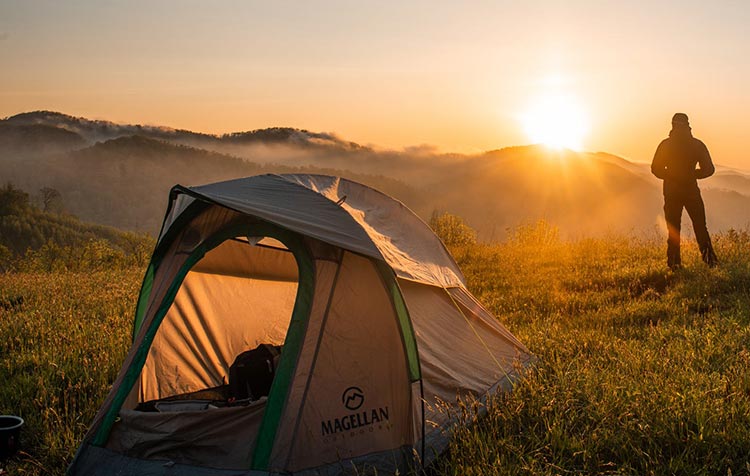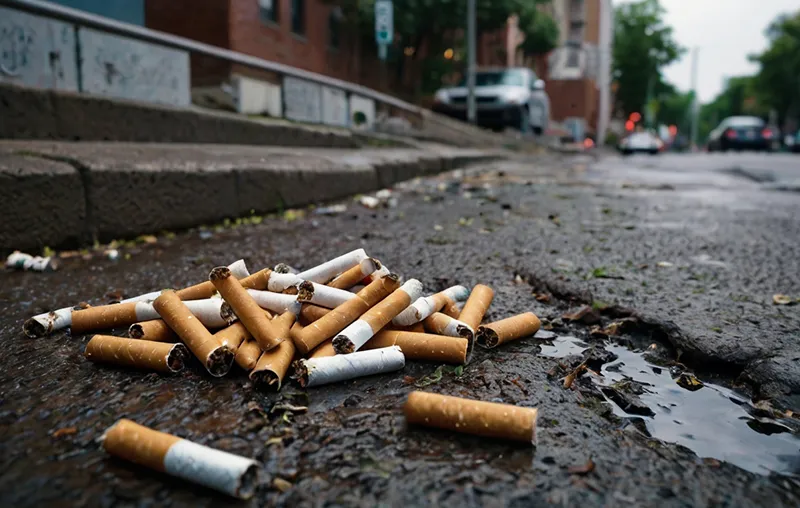Looking for typical biases against sustainable travel? We humans can think of the craziest arguments to avoid having to change anything in our own way of life. But in view of the biggest environmental problems of our timewe cannot avoid finding and adapting solutions. Since our travel behavior is a major contributor to climate change, we can sustainable travel be an important key. But the more often the topic is talked about, the more the prejudices and ecotourism myths increase.
In this article, I would like to introduce you to eight of these clichés and show you how to logically debunk them. Use the knowledge either in everyday discussions or to overcome your own prejudices against sustainable travel.
1. "Sustainable travel is expensive and complicated."
Booking an eco hotel can sometimes be a bit more expensive than you might be used to. But traveling sustainably means much more than just hotel and train ticket. It concerns your entire behavior in the time before, during and after the trip and includes, for example, waste avoidance and the Consumption of regional food one.
For example, it's much cheaper if you don't constantly buy disposable products that you subsequently throw away - but instead rely on Reusable products switch. So you can through Sustainability even save money in the end. And when you travel in India in a small domestic restaurant eats an Indian chickpea curry instead of supporting an international Fastford chain - that's also cheaper and more sustainable at the same time.
And it's not complicated either. Complicated are only the things you have tried yet. If the motives for sustainable travel match your personal values, it should be worth a try. Just look around at ecological travel providers. There, too, you will find "complete packages" that will make your trip as uncomplicated as possible.
2. "Green hotels don't take sustainability as seriously as they claim anyway."
In the tourism industry, there are certainly one or two free riders who are trying to greenwash themselves and their offerings. (see also Greenwashing)
Of course, this does not mean that all hoteliers work this way. It simply doesn't make sense to generalize. There are also accommodations that have geared their entire philosophy towards sustainable management.
For more transparency in the travel offers provide there however the certifying environmental seals as for example TourCert. The non-profit organization promotes ecological, social and economic corporate responsibility in tourism and guides providers to make their offers increasingly sustainable. As a traveler, you can then be quite sure that you have found a truly environmentally friendly accommodation with a sustainable philosophy. So your prejudice against sustainable travel is pretty fuzzy.
3. "It's much faster to get to your destination by plane."
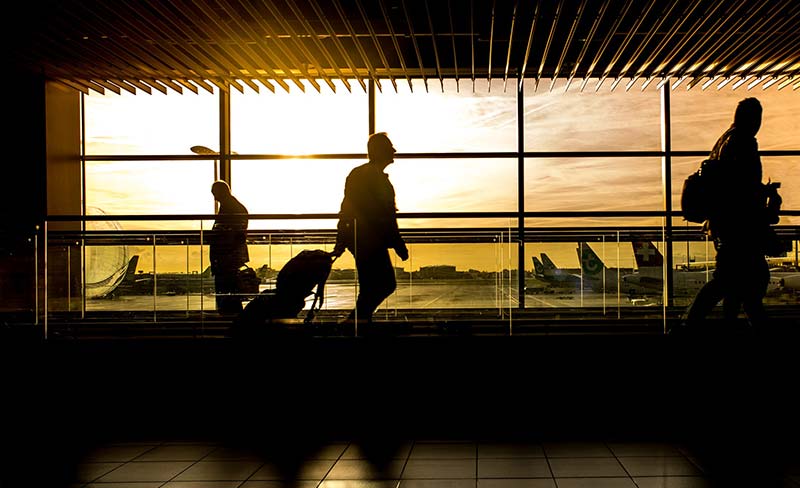
Is that really the case? You can really Do not be distracted by the pure flight time. For example, a flight from Berlin to Düsseldorf would take about 1.25 hours. To be on the safe side, you have to be at the airport 1.5 hours in advance. After you finally get out of the airport in Düsseldorf after 15 minutes, which is also not in the middle of the city, you have to be driven into the city for another 15 minutes. All in all, the trip then takes at least 3.25 hours, while the much more comfortable train ride takes 4.25 hours and is much more environmentally friendly.
For longer distances, however, the airplane is certainly the means of transport that gets you from A to B the fastest. Since the environmental impact of flying is unfortunately extremely high, you should always weigh the purpose of your trip with its ecological impact.
4. "In a country like Indonesia, plastic waste cannot be avoided, everything is full of it!"
That's certainly not easy, it's true. Especially because around 82 percent of the plastic waste in the sea comes from Asian countries.₁ But this fact is far from being a reason to use it as an excuse for environmentally harmful behavior. After all, the principles of the Zero Waste Lifestyle of course also in Indonesia. Just take your backpack or your Jute bag with for shopping - because foodstuffs such as bananas or apples are also available there without packaging. At the checkout, you then refuse the plastic bag - and whenever the chance arises, you educate people about why it's important, Avoid plastic waste as much as possible.
There are thousands of things you can do to avoid waste, even in Indonesia. Because what's in the environment is usually a result of poor recycling systems, lack of education and increasing convenience. Just be smart and exemplary - and do it better. Instead of using the mistakes of others as an excuse - to then be able to commit the mistakes yourself.
5. "The train is always late."
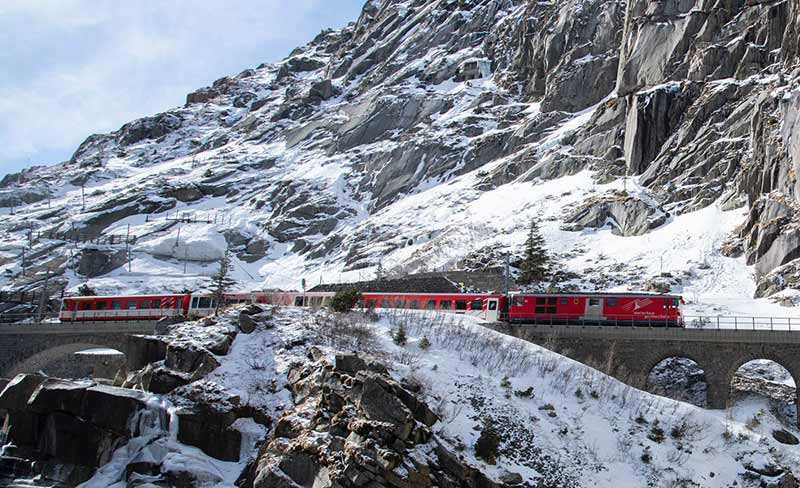
By car, you're "always" stuck in traffic - and the plane "always" takes off late. Delays may occur with any means of transport - but it definitely doesn't "always" happen. Since you're usually on the road longer in the car and have to concentrate fully, train travel is much more pleasant, isn't it? It's not only more comfortable and environmentally friendly, you can even work or do other things on the way.
And if the train is delayed, you will even receive a refund upon request.. In addition, the significantly environmentally friendly form of transportation - and usually does not take you much later to your destination compared to domestic flights.
6. "When you carpool, you're always sitting in the car with freaks anyway."
Of course, it can always happen that you come across strange people. But are there really "always" freaks in the car? How often have you offered or used rides? I myself regularly meet great people on the trips.
In fact, modern ridesharing platforms allow you to see exactly how other drivers have rated a requesting rider. This way you can choose in advance who you let in your caror with whom you want to ride. So you have basically rather no strange people in the car, protect the environment and save money.
Tip: You hear this prejudice against sustainable travel more often! Learn under sustainable driving more tips on how to get from A to B in an even more environmentally friendly way.
7. "IF I'M FLYING ANYWAY, I DON'T NEED TO PAY ATTENTION TO SUSTAINABILITY ANYMORE."
Imagine that every vacationer would think like that. Then there would be only inconsiderate tourists. In my opinion, if you're already flying, you should be even more careful about sustainability. (see also sustainable flying)
In addition to an appropriate relationship between travel distance and travel duration, your behavior at the vacation destination in particular is crucial for the sustainability of your trip. Ride a bike there too, walk or use public transportation like trains and buses. Clean up the beaches with others and explain to people why plastic waste is a big problem. Shop local and stay away from the stores of large international corporations. The more positive things you do locally, the more sustainable your entire trip will be. Using the flight as a general excuse for not having to pay attention to sustainability afterward is definitely the worst approach, and you're just trying to make the Shifting responsibility to others. Your argument just seamlessly joins the typical prejudices against sustainable travel.
8. "Collecting trash on the beach is supposed to be educational? When you get back, they'll keep doing what they're doing anyway!"
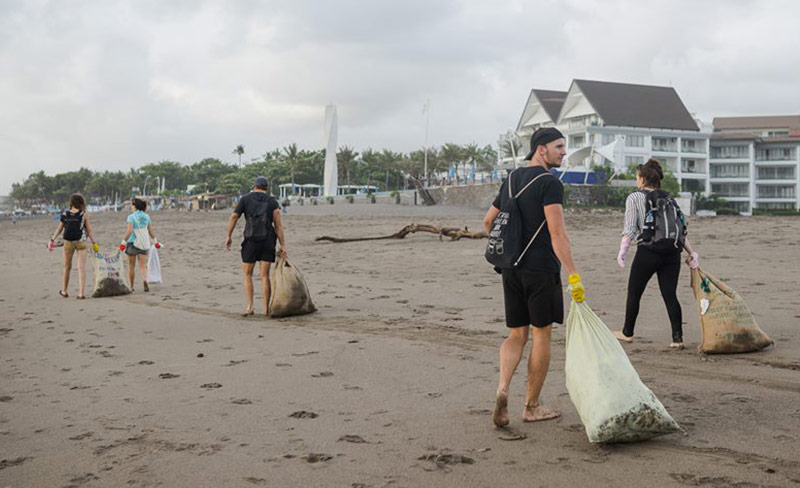
You act as if all people are the same. Of course, there will be supporters for whom the one CleanUp was a one-time beach cleanup. Nevertheless, they have their Contribution made and done something against the plastic waste in the environment. Anyone who has such CleanUps begins or supports, is aware of this environmental problem and will certainly not produce more waste in the future, but rather probably less. In addition, there is also the chance that it will be told to others. So collecting trash on the beach is not just a short-term success in terms of a clean beach, but can also help people litter less in the long term and start cleanup campaigns more often.
Sharing the images on social media also helps to reach thousands of people within a very short time, and to make people rethink. With your statement, unfortunately, in the end you only stop the people who are willing to make this contribution to a clean nature.
Put aside preconceptions about sustainable travel and rethink!
Sustainable travel is not complicated and not expensive. And the train is not always late and the plane not always faster. Why does it have to be so fast anyway? A real, sustainable vacation should decelerate and relax. I hope that with this article I could take away some of your preconceptions about sustainable travel and give you some valuable tips for everyday discussions.
Do you have questions or can you think of other ecotourism myths we should talk about? Feel free to leave me a comment below this post.
Stay sustainable,

PS.: Did you know. Offset CO2 emissions can? In the linked article you will learn how it works!
References:
₁ Ellen MacArthur Foundation: The New Plastics Economy - Rethinking The Future Of Plastics & Catalysing Action, January 2016, p.32.

